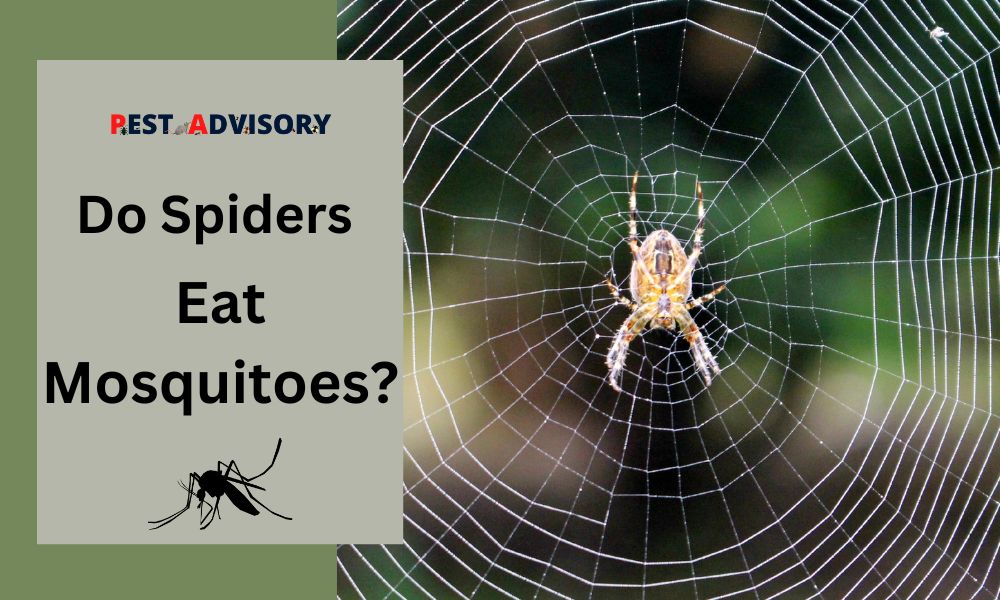Spiders and mosquitoes are common inhabitants of our environment, often evoking mixed feelings among humans.
While many of us appreciate spiders for their role in pest control, there’s a lingering question: Do spiders actually eat mosquitoes?
This article delves into the fascinating world of arachnid predation, unraveling the truth behind spider diets and their potential appetite for these pesky bloodsuckers.
Important Note: If you're tired of pests and want a reliable solution, then you should definitely consider seeking help from a professional pest control company. DIY solutions can be effective, but if you're dealing with a significant pest infestation, you don't want to rely solely on DIY methods. Pest control companies typically don't charge huge fees. You can fill out this form to receive free quotes from the top local pest control companies, and compare the quotes and see for yourself. Then, finally, your pest problems will be eliminated for good.
Join us as we uncover the secrets of spider-mosquito interactions, shedding light on the age-old question of whether spiders truly indulge in mosquito feasts.
Do Spiders Eat Mosquitoes?
Yes, spiders do eat mosquitoes. While they primarily feast on other insects, some spider species such as Evarcha culicivora and Paracyrba wanlessi are specialized in capturing mosquitoes and will even ignore other insects to prioritize a mosquito meal.
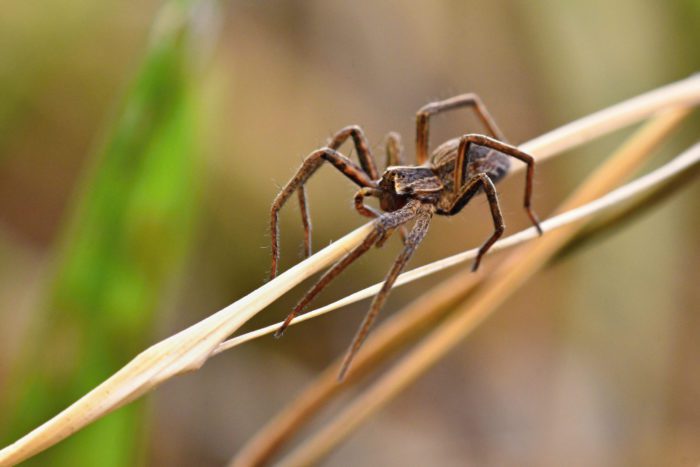
What Types of Spiders Eat Mosquitoes?
There are many types of spiders that eat mosquitoes, but some of the most common ones include
Jumping Spiders
Jumping spiders are known for their agility and excellent vision, which allows them to hunt down and catch flying insects, including mosquitoes.
Jumping spiders are found all over the world and are commonly found in gardens and other outdoor spaces.
Orb Weavers
Orb weavers are a type of spider that spins a circular web, which can trap mosquitoes and other flying insects.
Wolf Spiders
Wolf spiders are also known to eat mosquitoes, as well as a variety of other insects. They are ground-dwelling spiders that do not spin webs, but instead hunt their prey by chasing and capturing them.
Crab Spiders
Crab spiders are ambush predators that can hide among flowers and foliage to catch mosquitoes and other insects that come close.
Fishing Spiders
Fishing spiders are large spiders that live near water and can catch mosquitoes and other insects that land on the surface.
Joro Spider
The Joro spider is a large spider that is native to Asia but has been introduced to other parts of the world, including North America. It is known to eat a variety of insects, including mosquitoes, and can be beneficial in controlling mosquito populations.

Mosquitoes as Potential Prey for Spiders
1. Mosquito Characteristics That Might Make Them Attractive to Spiders
Mosquitoes possess several characteristics that make them potential prey for spiders.
Firstly, mosquitoes are small in size, typically ranging from 2 to 10 millimeters in length, which makes them suitable for consumption by many spider species. Their compact size allows spiders to easily capture and manipulate them.
Additionally, mosquitoes are a rich source of nutrition for spiders. Female mosquitoes, in particular, require blood meals to reproduce, making them a concentrated source of protein.
Spiders often prioritize high-protein prey, and the abundance of mosquitoes in certain environments can make them an attractive target for spiders seeking nourishment.
2. Mosquito Size and Availability as a Factor in Spider Predation
The size and availability of mosquitoes play a significant role in spider predation.
Due to their small size, mosquitoes are more vulnerable to capture by spiders compared to larger insects.
Spiders are equipped with specialized silk-spinning organs and venomous fangs, enabling them to immobilize and subdue prey of varying sizes, including mosquitoes.
Furthermore, the availability of mosquitoes affects spider predation rates. In areas with high mosquito populations, spiders may encounter mosquitoes more frequently, increasing the likelihood of incorporating them into their diets.
Factors such as seasonality, habitat type, and climate can influence mosquito abundance, subsequently influencing spider predation patterns.
3. Overview of Studies or Observations Suggesting that Spiders Do Eat Mosquitoes
Multiple studies and observations have provided evidence supporting the notion that spiders do eat mosquitoes.
Field studies have documented spiders capturing and consuming mosquitoes as part of their regular diet. These observations have occurred in various habitats, including forests, gardens, and urban areas.
Additionally, laboratory experiments have demonstrated that spiders readily accept mosquitoes as prey when provided with the opportunity. Controlled studies have shown that spiders exhibit successful predation on mosquitoes, confirming their ability and willingness to consume them.
While specific spider species may exhibit variations in their dietary preferences, the evidence from studies and observations strongly suggests that mosquitoes are indeed a part of many spiders’ natural prey repertoire.
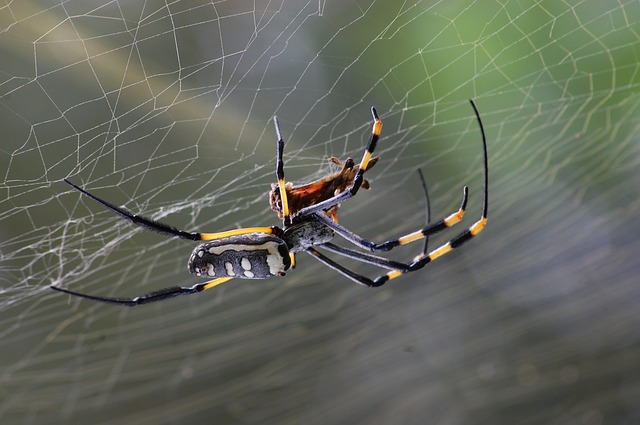
Counterarguments and Debunking Myths
A. Alternative Perspectives or Conflicting Evidence
While the prevailing evidence suggests that spiders do eat mosquitoes, it is essential to acknowledge alternative views and conflicting evidence.
Some individuals may argue against the effectiveness of spiders in controlling mosquito populations or claim that spiders have preferences for other prey over mosquitoes.
B. Addressing the Argument that Spiders are Not Effective at Controlling Mosquito Populations
One common counterargument is that spiders are not effective at controlling mosquito populations due to the sheer number of mosquitoes present.
Critics argue that the reproductive capabilities of mosquitoes outweigh the predation efforts of spiders, rendering them insignificant in mosquito control.
However, research suggests otherwise. While it is true that individual spiders may not eliminate an entire mosquito population, they do contribute to reducing mosquito numbers.
Spiders are natural predators that, collectively, form an essential part of the ecological balance.
Their predation on mosquitoes helps limit mosquito populations and minimize their impact on human populations.
C. Refuting Claims that Spiders Have Preferences for Other Prey Over Mosquitoes
Some claims assert that spiders prefer other prey, such as flies or insects, and do not actively seek out mosquitoes. This argument suggests that mosquitoes are not a significant part of spiders’ diets.
Contrary to these claims, studies, and observations indicate that spiders are opportunistic and adaptable predators. They adjust their feeding behaviors based on prey availability, seasonality, and habitat conditions.
While spiders may consume a variety of insects, including flies, ants, or beetles, mosquitoes are still considered a valuable food source due to their abundance and high-protein content.
Furthermore, experiments have shown that when given the choice, spiders readily accept mosquitoes as prey. This supports the notion that spiders do not have strong aversions to mosquitoes and are willing to include them in their diets.
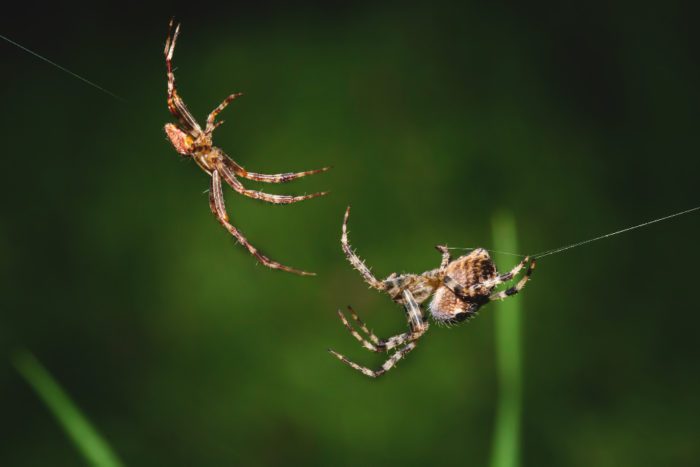
Frequently Asked Questions
Are spiders an effective way to control mosquito populations?
Yes, spiders are an effective way to control mosquito populations as they can lower and stabilize their populations.
Some spider species like Evarcha culicivora and Paracyrba wanlessi are specialized in capturing mosquitoes.
However, it should be noted that spiders alone may not be enough to completely eradicate mosquito populations and other methods like elimination of breeding places and larvicides may also need to be used.
How many mosquitoes can a spider eat in a day?
A medium-sized spider can eat 1-3 mosquitoes per day.
However, the number of mosquitoes a spider can eat in a day depends on its size and species. Some larger spider species can consume more mosquitoes in a day.
Additionally, spiders may not actively hunt mosquitoes but rather catch them in their webs or randomly encounter them while hunting for other insects.
Can having spiders around my house help prevent mosquito bites?
Having spiders around the house can potentially help prevent mosquito bites as they can consume mosquitoes and reduce their populations.
However, it should be noted that spiders alone may not be enough to completely prevent mosquito bites.
Other measures such as using mosquito repellents, installing screens on doors and windows, and eliminating standing water where mosquitoes breed may also be necessary to effectively prevent mosquito bites.
Are there any downsides to having spiders around to control mosquitoes?
While having spiders around to control mosquito populations can be beneficial, there are some potential downsides.
Some people may be afraid of spiders and find their presence uncomfortable or undesirable.
Additionally, some spider species can create unsightly webs and may leave fecal matter or shed skins behind.
In rare cases, some spider bites can also be harmful to humans. However, most spiders are harmless and beneficial to have around the house.
Is it safe to let spiders live in my house to control mosquitoes?
Yes, it is generally safe to let spiders live in your house to control mosquito populations.
Most spider species are harmless to humans and can provide several benefits such as reducing populations of harmful insects and pests.
However, if you have a known allergy to spider bites or find their presence uncomfortable, you may want to take measures to remove spiders from your house or limit their presence then you can use diatomaceous powder to kill spiders.
Additionally, if you live in an area where venomous spiders are common, it may be best to contact a pest control professional to safely remove them.
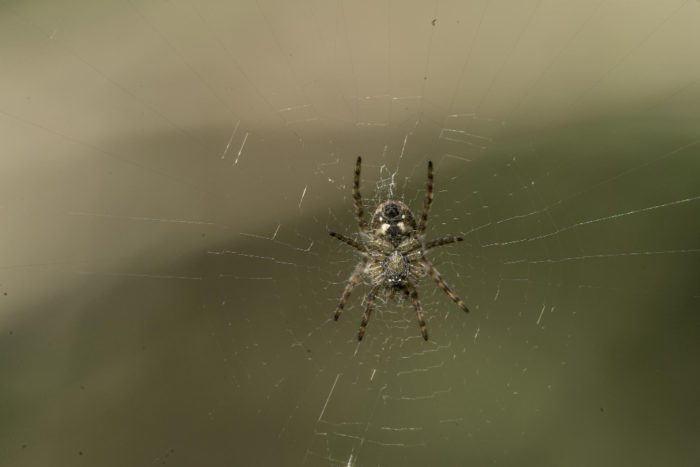
Conclusion
In the intricate web of spider-mosquito interactions, we have unraveled the truth behind the age-old question: Do spiders eat mosquitoes?
The evidence overwhelmingly supports the notion that spiders do indulge in mosquito meals, playing a vital role in natural pest control.
While they may not single-handedly eradicate mosquito populations, spiders contribute to reducing their numbers.
As we navigate the fascinating realm of arachnid predation, let us appreciate the intricate balance of nature and the remarkable abilities of these eight-legged hunters.

